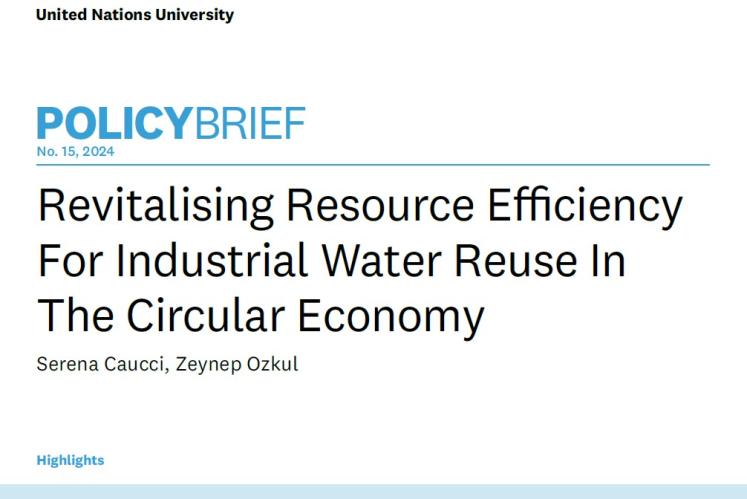The Circular Economy approach to water reuse is an essential and strategic facet of addressing the water resource crisis, and its implementation stands to maximise the economic value of water resources by reducing water inefficiency and enhancing water security. Industrial water reuse systems provide water-intensive industries with better comprehension of and control over water and wastewater costs and can aid in reducing dependencies on external water supplies.
Fit-for-purpose water regulations enable water reuse based on the quality requirements of the targeted use combined with financial incentives, such as reduced tariffs for reclaimed water use or subsidies to companies – thus providing the pathway for circular practices. The public acceptance of water reuse remains a key step to achieving a transformative shift towards coherent governance processes to manage wastewater for reuse purposes effectively.
Conducting comprehensive human and environmental impact assessments and promoting resource-efficient practices, all while considering community acceptance and nurturing positive attitudes toward the use of wastewater, is of critical importance. In addressing the global challenges of water stress and urban transformation, synergies must be identified to increase the resilience of urban areas. Fostering the industrial use of wastewater through Public-Private Partnerships (PPPs) will enhance the resilience of urban systems and achieve tangible progress towards the 2030 Agenda for Sustainable Development.
Read our policy brief for insights and recommended action points.





